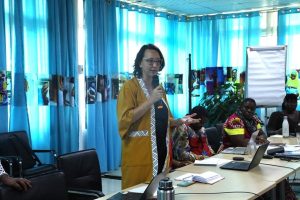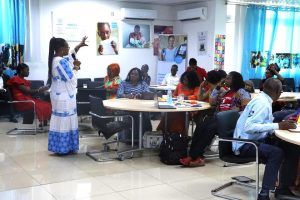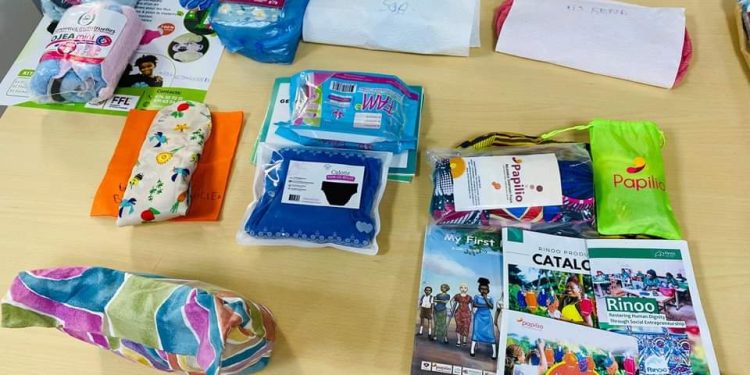Story, Louvier Kindo Tombe
The call for action to spread the mastery and use of menstrual towels among adolescent girls in Cameroon was echoed during a media coffee that took place Tuesday, October 22, 2024 at the head office of UNICEF in Yaounde.
“One of the greatest challenges with menstrual hygiene in Cameroon is with communication around the issue,” says Patricia NOROLALAO, Adolescent and Gender Programme Specialist at UNICEF.
“We shall be grateful with the efforts put in place by the media to support adolescent girls in their menstrual related issues,” Nadine Perrault, UNICEF’s representative in Cameroon added.
Media men and women from print, online and audiovisual organs attended the ceremony and all pledged to beef up communication around the mastery and use of menstrual towels and related gadgets.
The media coffee came shortly after UNICEF rallied civil society actors who on their part pledged to step up production of menstrual related materials with emphasis on reusable menstrual pads.
This October, UNICEF Cameroon, in collaboration with local stakeholders, launched a challenge aimed at improving access to reusable sanitary towels for vulnerable adolescent girls.

Menstrual hygiene management remains a significant issue, especially in rural areas where many girls face barriers such as the high cost of products, limited sanitation facilities, and cultural taboos.
According to UNICEF, a multi-sectoral approach is key to addressing these challenges and ensuring better access for all.

During the deliberations, it was observed that access to reusable menstrual towels in the hinterlands is very difficult partly because of lack of adequate knowledge and unavailability of the products.
The media encouraged UNICEF to make use of community radio stations and work with traditional leaders for the message to be passed on and in the different local languages.
Emphasis was also made on encouraging locals at the different communities to engage in the production of reusable menstrual towels.
“This is going to be a holistic approach because access to portable water is vital,” a scribe of UNICEF said.
The ceremony saw a detailed presentation on the local and global challenges of menstrual hygiene affecting more than 8 million women and young girls in the country. Only 17% of women and young girls are using reusable menstrual towels in Cameroon, 4 % are using menstrual cups and 60 % are into synthetic menstrual pads.

Also present at the media coffee were some adolescent girls from the Adolescent Girls Advisory Board (AGAB) created by UNICEF to spearhead the promotion of safe menstrual hygiene and period poverty. They each presented their challenges and possible solutions to the situation.
UNICEF is determined to fight period poverty at all fronts by improving the capacity of health workers.








